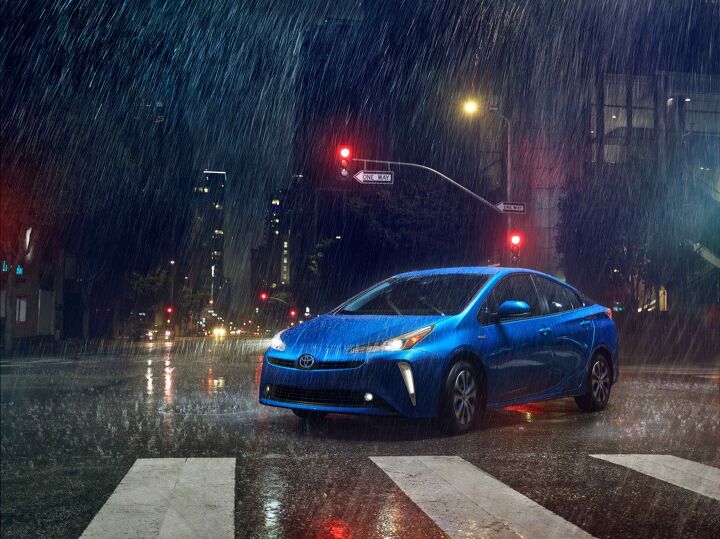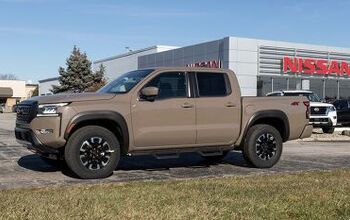Toyota - the Non-EV Brand People Assume Is an EV Brand

Confusion still reigns in the minds of auto consumers, especially when it comes to the murky world of electrification. Past studies have shown that years of misleading terminology and boasting about the capabilities of hybrid and plug-in hybrid vehicles resulted in a public that knew little about the changing auto landscape, or what a hybrid car even does.
“What will happen when my hybrid’s battery depletes?” is a question too many people still ask themselves.
The same murkiness is at play in a recent study by Cox Automotive, in which we learn that Toyota has earned a reputation it doesn’t deserve.
Cox surveyed some 2,503 consumers and 308 franchised dealers to pinpoint barriers to electric vehicle ownership. Consumer expectations were also on the must-find list. The study — the first in a four-part series — is full of useful data on the driving styles and associated costs of various age demographics, as well as the respondents’ attitudes.
The consumer group included those who already own an EV and those looking to buy, as well as those with no intention of kicking internal combustion to the curb. Go figure, the vast majority (83 percent) of so-called “non-considerers” placed range anxiety at the top of their gripe list, with cost (70 percent) a runner-up. For those who’d consider an EV purchase, cost topped the list of ownership barriers, with 77 percent perceiving initial costs as being more than that of a conventional car.
Nothing shocking here. As battery prices drop and range expands, EVs are slowly becoming more viable in terms of cost and driving range, but they’re still years away from being on par with ICE-powered vehicles. The culling of small cars and big boosts to both standard safety equipment and fuel economy has elevated an ICE vehicle’s average selling price at a rate double that of EVs.
What is surprising, at least for those who assume the public is well-versed on all things automotive, is how the respondents ranked automakers on the EV file. Essentially, this crowd was asked which brands spring to mind when thinking EVs. As Cars Direct noted, Toyota comes in at No. 2, right behind first-ranked Tesla. While some 81 percent of respondents mentioned Tesla, an automaker which has never sold a non-EV vehicle, some 52 percent listed Toyota.
Toyota sells a great number of hybrid vehicles (the Prius and RAV4 Hybrid, to name a couple of top segment sellers), as well as a lone plug-in hybrid (Prius Prime), but it currently fields exactly zero electric vehicles. The limited-market Mirai powers itself solely by electricity, but an on-board hydrogen tank and fuel cell converts that fuel to electric current. No giant battery pack needed, no plug to be found.
It looks like Toyota’s hybrid game has made it a major player in the EV field, if only in people’s minds.
Automakers who put the money and effort into building a viable, lower-cost EV fared worse in the recognition test. Only 47 percent of respondents mentioned Chevrolet, seller of the 248-mile Bolt and, until recently, the “extended range electric vehicle” Volt.
Nissan fared worse. Despite selling the all-electric Leaf — a car now well into its second generation — since the beginning of the decade, only 42 percent mentioned Nissan. Ungrateful bastards, a brand loyalist might say.
Toyota was a reluctant late entry in the “all Americans will want an EV” game, prefering to offer hybridized versions of its existing models for not that much more money. That strategy’s still top of mind. From an environmental and cost perspective, it’s a solid plan, but Toyota knew it couldn’t hold out forever. With its rivals promising Big EV Things in the coming decade, Toyota hauled itself aboard the bandwagon.
Six electric vehicles are incoming from Toyota between 2020 and 2025, but brand perception is not something it needs to lose sleep over.
[Image: Toyota]

More by Steph Willems
Latest Car Reviews
Read moreLatest Product Reviews
Read moreRecent Comments
- Orange260z I'm facing the "tire aging out" issue as well - the Conti ECS on my 911 have 2017 date codes but have lots (likely >70%) tread remaining. The tires have spent quite little time in the sun, as the car has become a garage queen and has likely had ~10K kms put on in the last 5 years. I did notice that they were getting harder last year, as the car pushes more in corners and the back end breaks loose under heavy acceleration. I'll have to do a careful inspection for cracks when I get the car out for the summer in the coming weeks.
- VoGhost Interesting comments. Back in reality, AV is already here, and the experience to date has been that AV is far safer than most drivers. But I guess your "news" didn't tell you that, for some reason.
- Doc423 Come try to take it, Pal. Environmental Whacko.
- 28-Cars-Later Mazda despite attractive styling has resale issues - 'Yota is always the answer.
- 28-Cars-Later Try again.



































Comments
Join the conversation
This survey has no relevance in my part of the world since there is no mention of Renault or Mitsubishi.
Before I drove a Tesla and a Nissan Leaf I owned 2 Toyota 4 Runners.